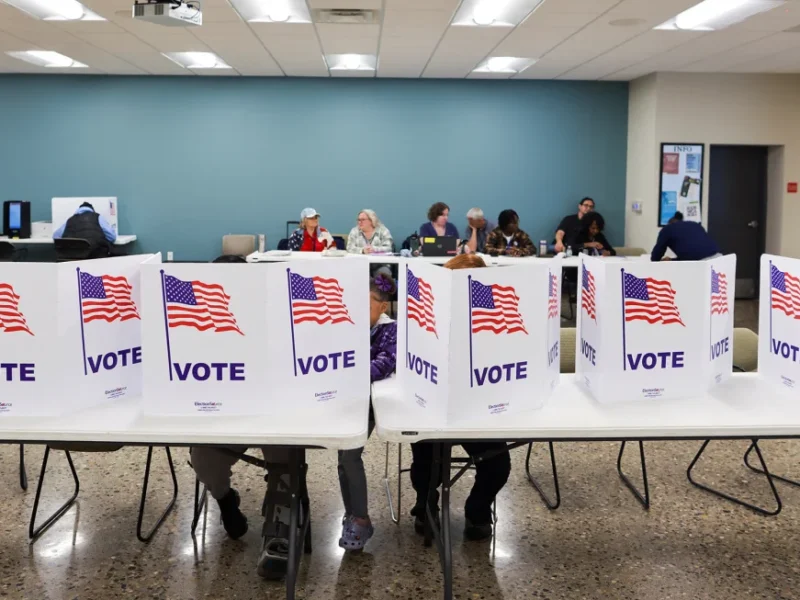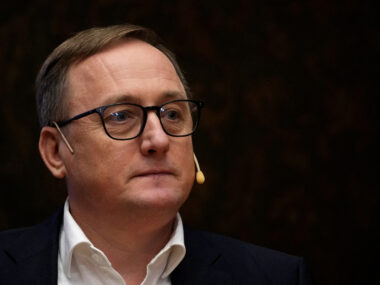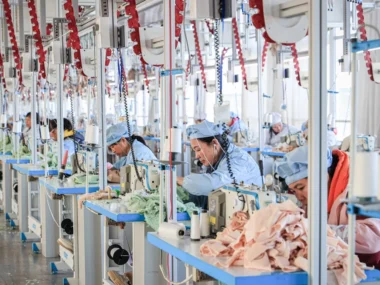As 2024 draws to a close, the impact of its major events will continue to shape the global landscape in 2025 and beyond.
This year saw the escalation of Israel’s war with Hamas in Gaza, which extended into Lebanon, where Israel fought Hezbollah until a fragile ceasefire was reached. In Syria, rebels succeeded in toppling Bashar al-Assad in a rapid offensive, and Russia’s war in Ukraine entered its third year.
However, it’s the political choices made in this record-setting year of national elections that are likely to have the most significant impact on global prosperity in 2025—particularly the reelection of former U.S. President Donald Trump.
“There’s a lot of frustration out there at how the global economy is going,” said Nathan Sheets, global chief economist at Citi. He noted the disappointing performance of many governing parties in this year’s over 60 elections. “The political climate feels more uncertain to me than at any time I can remember,” he added.
For many economists, the primary source of uncertainty is Trump’s potential return to the White House, especially regarding tariffs. On the campaign trail, Trump discussed imposing a 10-20% levy on all imports into the U.S. and a tariff of at least 60% on Chinese goods. After his victory over Kamala Harris, he proposed a 25% import tax on Mexico and Canada, along with an additional 10% tariff on China.
Predictions vary regarding the potential economic damage caused by Trump’s new tariffs, with economists pointing to potential harm depending on the level of duties. However, most agree that there would be negative effects.
“I continue to think that restrictions on trade, protectionist measures, are not conducive to growth,” said Christine Lagarde, president of the European Central Bank, when asked about Trump’s tariffs on European imports.
Higher tariffs could backfire on the U.S. economy itself. Goldman Sachs predicts a significant blow to U.S. GDP, peaking in 2026, due to a potential 10% tariff on all imports, which would raise consumer prices and reduce spending. The global economy would also be affected, depending on how other nations respond, possibly raising their own tariffs on U.S. goods.
“This could end in a global trade war which, while it could take many forms, at the extreme could knock 2-3% off global GDP,” said consultancy Capital Economics. A 3% loss in global output would erase much of the world’s economic growth.
Businesses dislike uncertainty, and even if Trump doesn’t implement widespread tariffs, concerns about potential tariffs on specific countries or industries could still weigh on investment, impacting economies of U.S. trade partners.
Goldman Sachs and J.P. Morgan have already adjusted their growth predictions for Europe next year due to these uncertainties.
“The impact is more direct in China, which will almost certainly face steep tariff increases,” noted Goldman Sachs analysts, downgrading their 2025 forecast for China.
Additionally, Trump’s new import taxes could contribute to a fresh round of inflation in the U.S. and elsewhere. American prices would rise more rapidly if Trump follows through with his proposed tax cuts and immigration crackdowns, which could lead to labor shortages and higher wages.
Chaos and stagnation
The United States is not the only nation experiencing major political shifts this year. In France, President Emmanuel Macron called for an early parliamentary election this summer, leading to a minority government that collapsed earlier this month. Similarly, Germany’s ruling coalition, the world’s third-largest economy, disintegrated last month, triggering a snap election scheduled for February 2025.
The newly formed cabinet in Paris, announced on Monday, is likely to face governance challenges similar to its short-lived predecessor, with a parliament lacking a clear majority. This will create ongoing political instability, hindering both business investment and consumer spending.
According to ING, a European bank, “Political turmoil will dampen growth” in France next year. “The persistent threat of censure, the inability to pass a budget to stabilize public finances, and the prospect of more elections are contributing to growing uncertainty.”
This uncertainty is expected to persist until at least mid-2025, when another parliamentary election could take place, per the French constitution.
Germany’s economic future will largely depend on the results of the upcoming election. A crucial issue is whether the new government will increase borrowing to fund investments and implement reforms to stimulate growth.
ING noted, “If not, stagnation will become the norm.”
Additionally, potential new US tariffs on imports will significantly impact Germany, given its large industrial sector and the United States’ position as its second-largest trading partner, after China.
Impact of wars
Global economic growth could be influenced by developments in the oil-rich Middle East, although economists are currently less concerned about immediate negative impacts from ongoing conflicts.
According to Sheets from Citi, the current conflict is not directly threatening oil supply, though it could potentially escalate. He added that major Middle Eastern nations are not seeking a regional conflict, and if they were, it would already be evident.
Oil prices have dropped since the surge following the Hamas attack on Israel on October 7, 2023, and are now back to levels seen in June 2023.
As for Syria, even before its civil war began in 2011, it did not play a significant role in global oil production, and the war has severely damaged its oil infrastructure. Capital Economics stated that developments in Syria will have minimal impact on the global economy.
Russia’s war in Ukraine has already affected the global economy, keeping natural gas prices in Europe significantly higher than usual. Former President Trump has expressed a desire to end the war quickly, but the solution will determine its economic consequences.
Citi analysts Schulz and Giani noted that a “controlled ceasefire” could boost business confidence in Europe and reduce energy prices, while a “chaotic collapse” could lead to increased refugee flows and escalate conflict with Russia.











